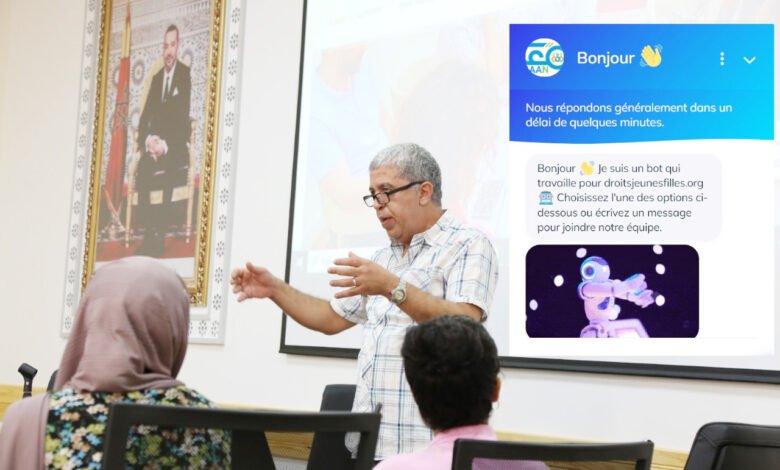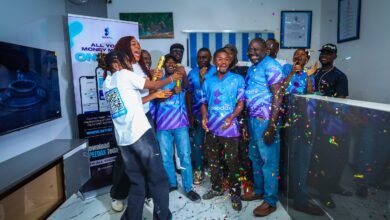Digitalization and Artificial Intelligence for the Rights of Young Girls in Africa
By El Mamoun Chafki, Expert in Digitalization and Artificial Intelligence

Young girls in Africa face many challenges, including discrimination and gender-based violence, limited access to education, and lack of economic empowerment. The digital revolution, combined with the rise of artificial intelligence (AI), offers new opportunities to improve their living conditions and defend their rights. This digital transformation can radically transform the way girls’ rights are protected and promoted. The use of these technologies makes it possible to overcome obstacles that previously seemed undefeatable.
Access to education through digitalization: transforming lives remotely
Education is a fundamental human right and a powerful lever to break the cycle of poverty and promote equality. However, in certain regions of Africa, young girls’ access to school remains hampered by cultural, economic or geographical barriers. Digitalization opens the way to innovative solutions, allowing these girls to access educational resources without having to travel. Online learning platforms, such as Khan Academy (a non-profit association founded in 2008 by Salman Khan with the objective of “providing quality educational content, free of charge, accessible to everyone and everywhere) or local initiatives, provide content adapted to the specific needs of young African girls. These resources allow young girls to study a variety of subjects such as mathematics, science and programming, and to develop essential skills for the job market.
In Tanzania, for example, initiatives like Bridge International Academies use tablets and digital media to deliver quality education in areas where traditional education infrastructure is absent or insufficient. By making education accessible, these initiatives break the cycle of poverty and enable young girls to become leaders in their communities.
AI in the fight against gender violence: discreet and effective support
Artificial intelligence can play a key role in fighting violence against young girls. In Africa, gender-based violence is a daily reality for many young girls, whether it is physical violence, early marriage or exploitation. Solutions like AI-powered chatbots offer a safe and discreet alternative to reporting such abuse.
A concrete example is the “Illy” chatbot created in Morocco by the National Collective for the Rights of Young Girls, with UNFPA support.
The Illy chatbot, accessible via the www.droitsjeunesfilles.org platform, is a concrete example of this technology used for young girls. Illy not only provides direct support to victims of violence, but also offers documentary resources to raise awareness of the rights of young girls and to provide information on sexual and reproductive health (SRHR). This information is crucial for young girls to be aware of their rights and the services available to protect them. In addition to meeting the immediate needs of users, Illy contributes to the collection of anonymous data that can be used to improve interventions by NGOs and governments in the most vulnerable areas.
At the same time, platforms like Safecity use AI to analyze abuse reports and identify high-risk areas. Data collected anonymously can then be shared with NGOs and governments for targeted interventions. AI can thus anticipate crises and help protect young girls in the most vulnerable environments.
Gender-based violence, including early marriage and sexual abuse, remains a major problem in Africa. Thanks to artificial intelligence, innovative solutions are emerging to report these abuses discreetly and effectively.
Economic empowerment: digitalization at the service of female entrepreneurship
Beyond education and protection against abuse, digitalization and AI also offer solutions for the economic empowerment of young girls. In Africa, digital microfinance platforms and online training allow young women to develop skills and access financing to create their own businesses. Programs like Kiva (a non-profit organization that allows Internet users to lend money to microcredit institutions in developing countries) or FemmeDigitale (a non-profit organization dedicated to eliminating the gender gap in the tech industry) offer microcredits, even to young girls from disadvantaged backgrounds, allowing them to launch entrepreneurial projects in various fields.
AI technologies can also be used to assess the creditworthiness of borrowers, making the process more fair and inclusive. This allows young girls to acquire economic independence, often essential to escape situations of dependency or domestic violence.
Advocacy in the digital age: global mobilization
Digitalization has redefined advocacy strategies by offering tools that make it possible to reach a much wider audience and amplify marginalized voices. In Africa, where many young girls face violations of their rights, digital advocacy plays a vital role in drawing attention to these issues and mobilizing concrete actions.
Social media platforms, in particular, have helped democratize advocacy. Through online campaigns such as #BringBackOurGirls or digital petitions, local movements can quickly gain international support. These campaigns raise awareness of issues such as early marriage, sexual violence or access to education, while engaging a large community around the world.
Additionally, artificial intelligence offers new opportunities in advocacy by analyzing the impact of messages and adjusting strategies based on feedback. This not only helps deliver key messages more effectively, but also identifies groups most receptive to campaigns, ensuring more targeted and powerful engagement.
Initiatives like Illy, the chatbot available on www.droitsjeunesfilles.org, play an essential role in this type of advocacy. Illy not only offers documentary resources on the rights and sexual health of young girls, but also helps proactively raise awareness by making this information accessible to a wide audience. This type of digital advocacy, supported by AI, makes it possible to reach young girls in hard-to-reach regions, while stimulating a global movement in support of their rights.
Cybersecurity and the protection of girls online
While digitalization offers many opportunities, it also presents challenges, particularly in terms of security. In Africa, as elsewhere, young girls are exposed to the dangers of cyberbullying, online abuse and human trafficking. In this sense, AI algorithms can detect and prevent this online abuse. AI-powered moderation tools can identify abusive behavior and inappropriate content, and alert relevant authorities or platforms for rapid interventions.
It is crucial that young girls also learn how to protect themselves online, through cybersecurity awareness programs. Initiatives that train girls in safe internet use are essential to ensure they can enjoy the benefits of digitalization while remaining safe from harm.
Using AI in ethical and inclusive way
Digitalization and artificial intelligence have the potential to significantly transform the lives of young girls in Africa. Whether it is improving access to education, fighting gender-based violence, promoting entrepreneurship or raising awareness, these technological tools are powerful levers for the empowerment of young girls.
However, it is imperative that these innovations are used in an ethical and inclusive manner, taking into account local needs and contexts. Initiatives like the Illy chatbot demonstrate that, when designed well, these technologies can have a lasting impact and change the lives of thousands of young girls across the continent.



